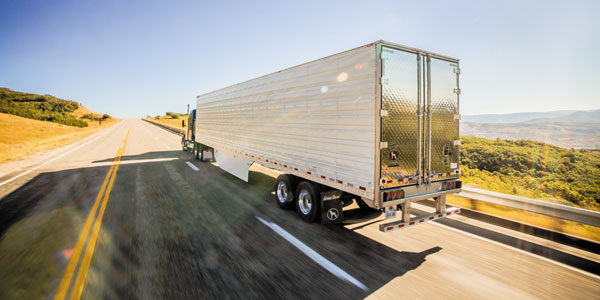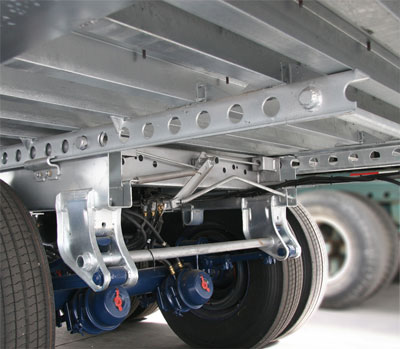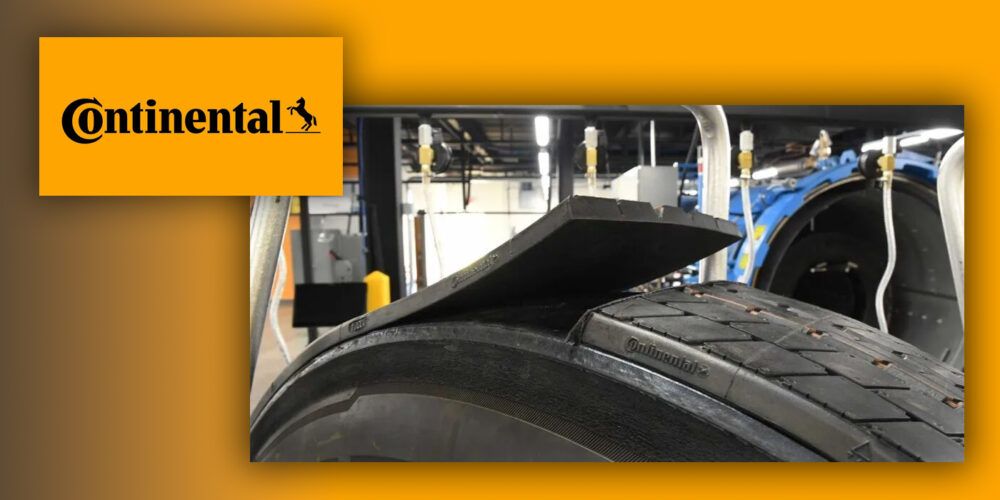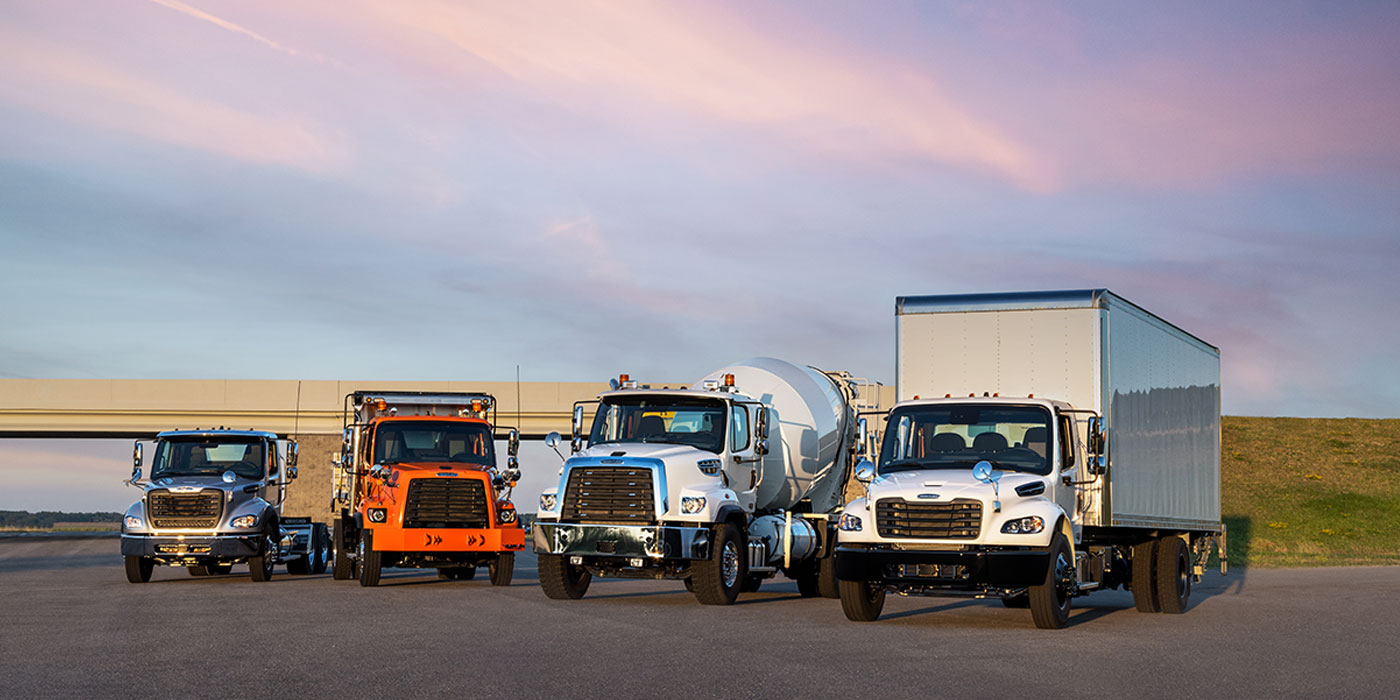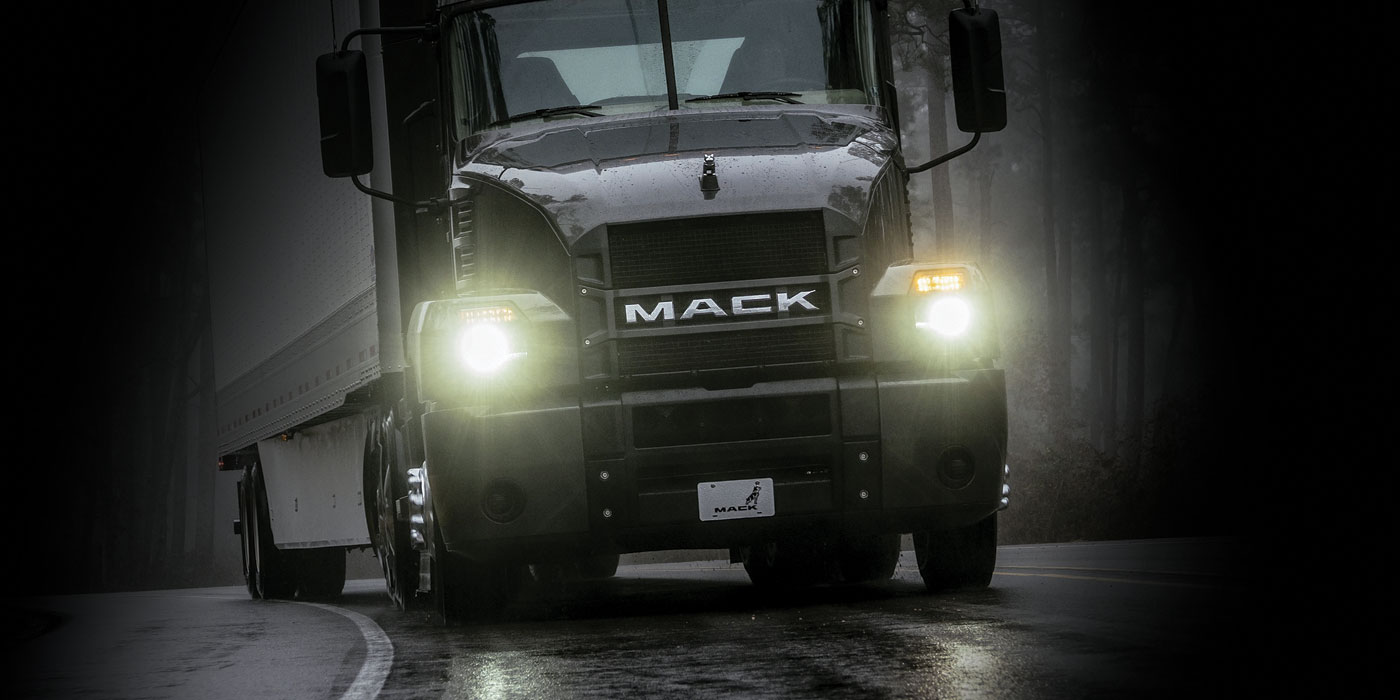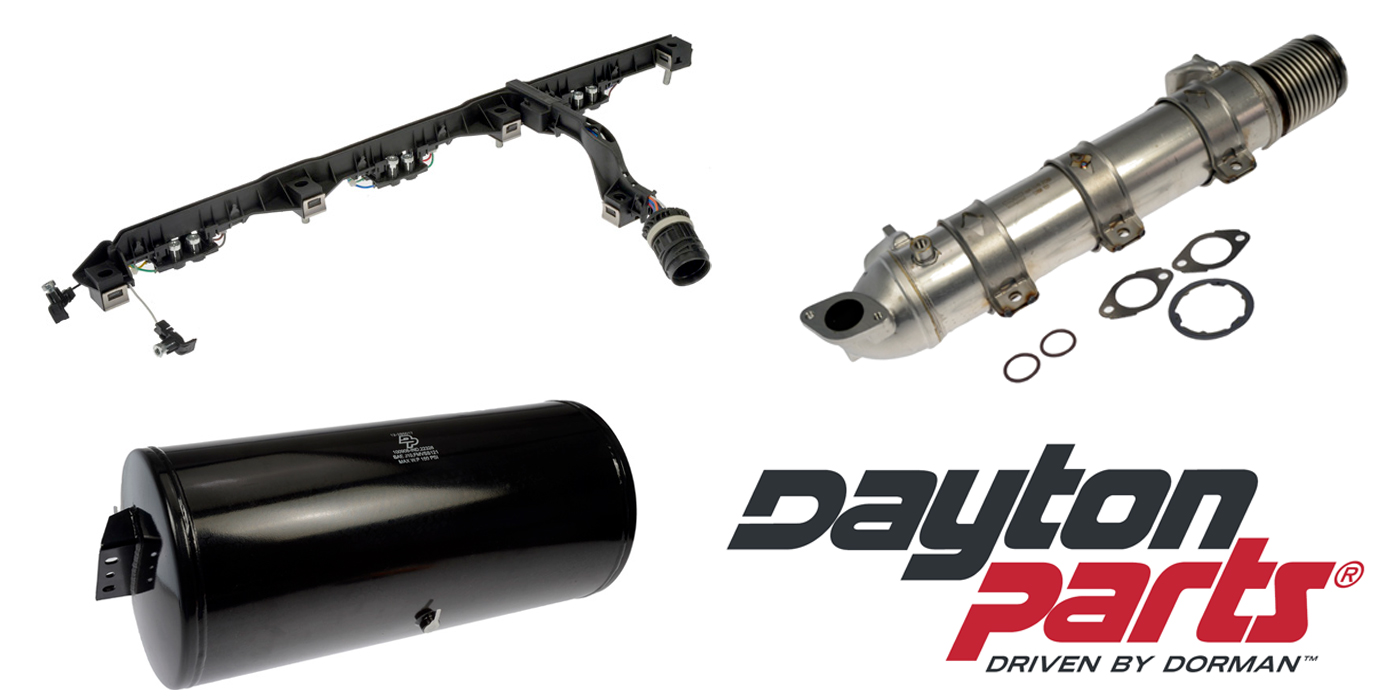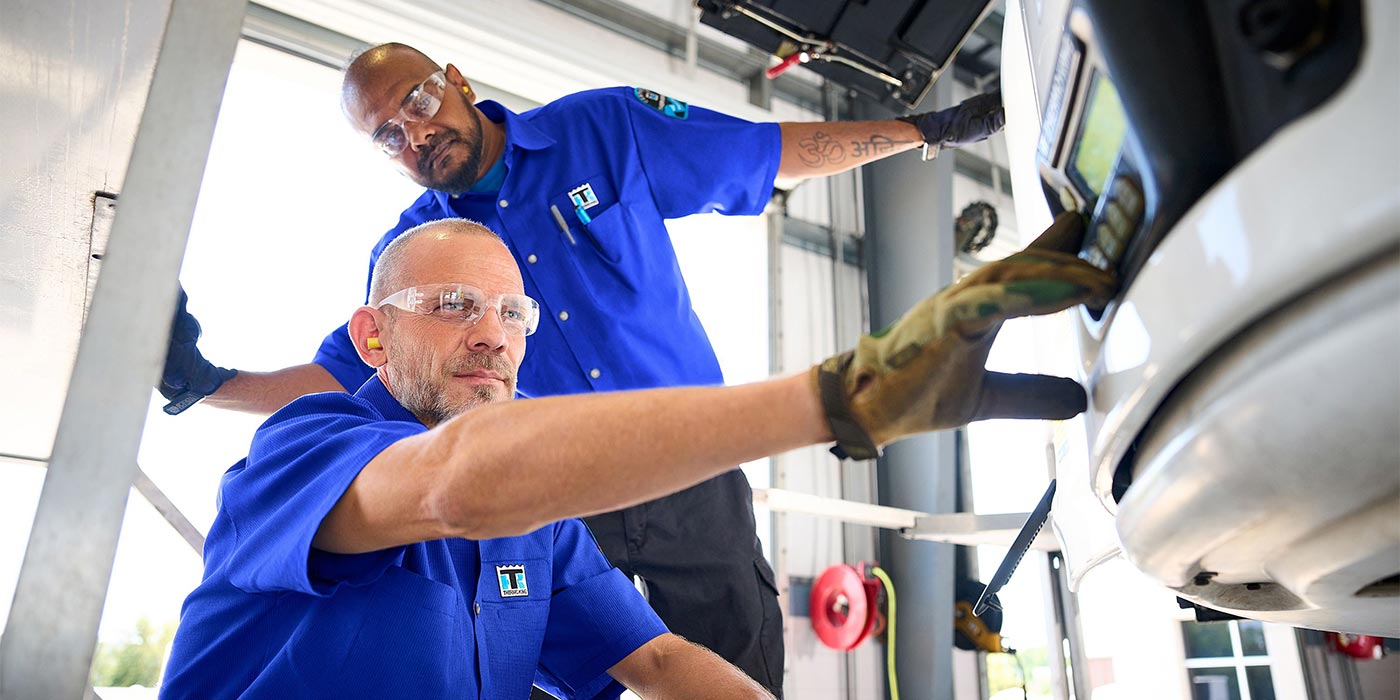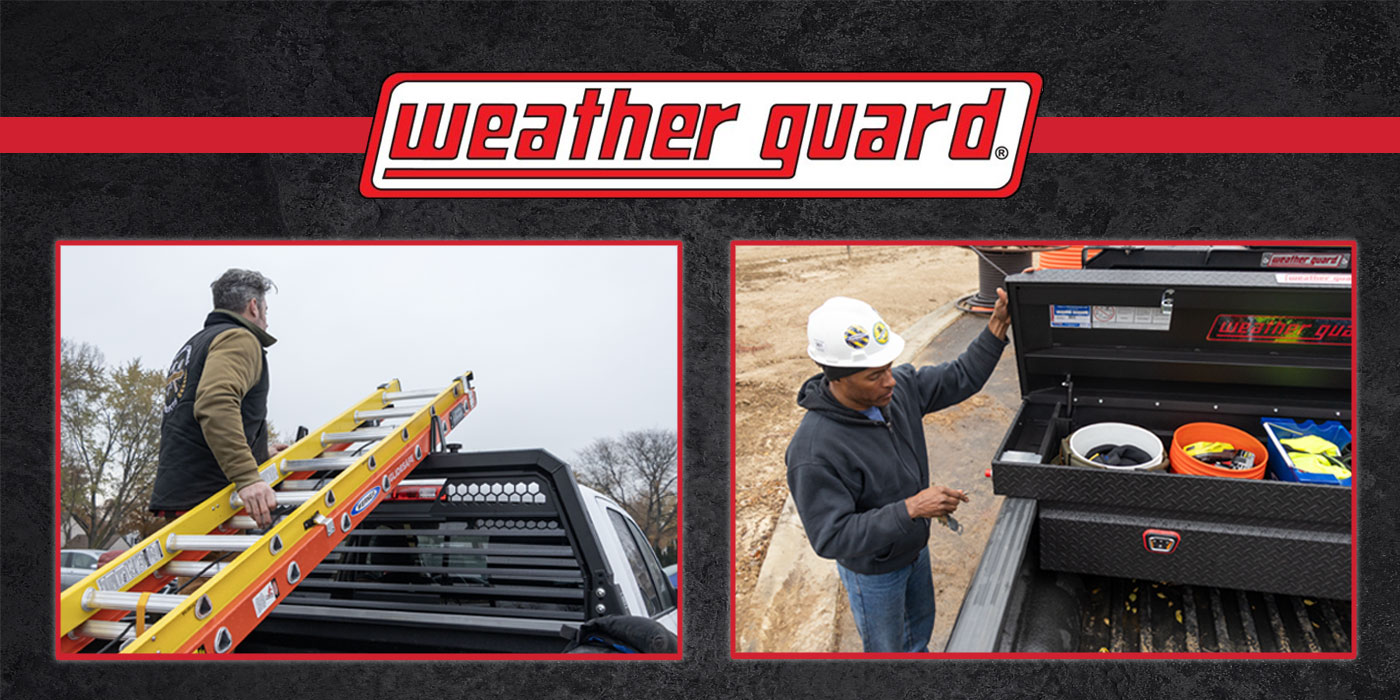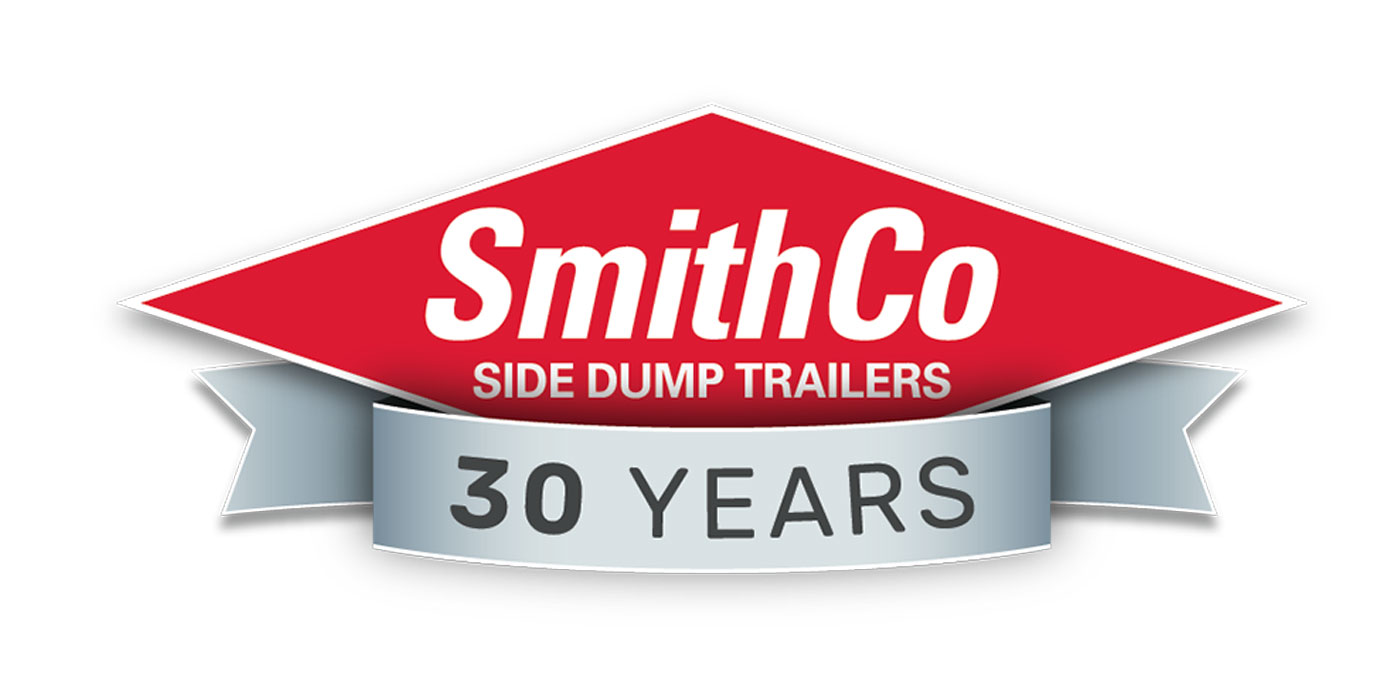Among trailer manufacturers, there is an ongoing effort to address costly corrosion and moisture intrusion.
At Great Dane, approaches to combat corrosion include replacing corrosive metal with non-corrosive composite materials and applying coating systems on the metal components, according to Chris Lee, vice president of engineering.
“Great Dane’s EnduroGuard rear frame uses stainless and galvaneal carbon steel to fight corrosion,” Lee explains. “Our CorroGuard thermoplastic coating used over carbon steel also enhances corrosion resistance. Today, we are also researching other coating systems such as zinc-rich epoxy primers and one-part waterborne coatings, for improved corrosion resistance.”
To address moisture intrusion during outgassing throughout the life of refrigerated trailers, Great Dane developed a liner material with a non-permeable barrier called ThermoGuard. The glass‐reinforced, thermoplastic liner, as part of its composite construction, features a metal barrier layer that effectively seals the trailer’s insulation.
Jong Seog Lee, vice president of research and development at Hyundai Translead, says that hot dip galvanization on all steel components and other critical parts is at the forefront of addressing and combating corrosion in the company’s trailers. “The benefit of hot dip galvanization to protect against corrosion is immeasurable and adds significant value to the trailer,” he says.
“Hot dip galvanization has approximately five times the service life and bonds to applied surfaces six times greater than zinc-rich paint,” he continues. “That bonding also makes the surface less abrasive and more difficult to scrape.”
The standard anti-corrosion package at Hyundai Translead includes fully coating every crossmember, the threshold plate, and landing gear including inner and outer legs, K-braces and mounting brackets. All of this is to provide protection in areas where the trailer is exposed to rocks, gravel, debris and dirt. The turn signal brackets, the upper coupler, the slider rail and the entire rear frame and impact guard are also hot dip galvanized to prevent corrosion from forming inside tubular members.
Purposeful design
“Preventing moisture intrusion requires a purposeful design process,” Hyundai’s Lee says. “That includes substituting traditional fasteners with adhesive technologies or other alternatives. Designs must also not depend on sealants or caulking to keep water at bay. Those products should only be used as added insurance.”
“Several years ago, we started transitioning some areas of our van trailers from steel and aluminum to galvanized steel or composite materials, which have improved corrosion resistance,” says Larry Adkins, senior manager of commercial trailer products at Wabash National. “In addition, we use bonding technology to create watertight connections and remove the need for metal fasteners that create snag points. Used in nose, roof, sidewall and component applications, our bonding technology maintains structural integrity and is less susceptible to water ingress than traditional rivets.”
On Wabash models, Adkins points out, the standard upper coupler includes sacrificial zinc anodes to slow corrosion in the kingpin area and a plated bolt rather than a rivet to reduce corrosion and add long-term reliability to crossmember to base rail connections. In addition, the manufacturer uses a one-piece wrap around nose rail in pace of an edge cap to wrap the roof over the top rail. “A reduced number of joints results in less opportunity for water ingress,” Adkins says. “This design also allows any water to roll off the trailer instead of pooling along the raised surface of an edge cap.
“One of our most significant innovations for preventing moisture intrusion in refrigerated trailers is molded structural composite (MSC) technology,” Adkins adds. “MSC is made with a high-efficiency foam core that is encapsulated in a polymer fiber-reinforced shell and protective gel coat. Its structural strength eliminates the need for metal or wood and the gel coat protects against water intrusion.”
Brett Olsen, marketing manager at Utility Trailer Manufacturing Co., says an advanced foam in place insulation process is used to prevent corrosion and moisture intrusion in the manufacturer’s refrigerated models. Also in use are a Barrier Door that features a bonded foam sandwich design for sealing and has hardware mounted without holes into the foam cavity to reduce moisture entry points.
“We use an advanced self-healing rust preventive coating on the underside of our trailers, and we completely submerge the front sub frame of our reefers to ensure that the entire assembly is completely coated, inside and out,” Olsen relates. “A stainless steel rear case and barrier tape between dissimilar metals reduces the potential for corrosion as well.
“All of the aluminum sheets on our trailers have Ultra Road Shield Plus [URS+] coating,” Olsen adds. “This ASTM-proven system employs a two-part acrylic paint process that includes two coats of zinc rich primer.”
Preventing moisture in trailer flooring
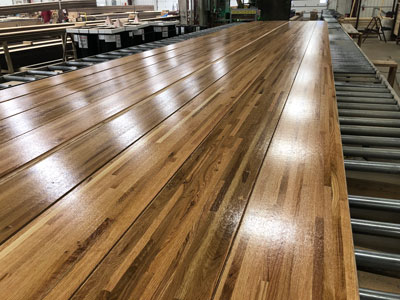
“The entire underside of a trailer’s floor is subject to many extremes, including water, so it’s a great place for fleets to invest in additional moisture protection,” says Chris Wolford, executive vice president of sales and marketing at Rockland Flooring. “Most undercoatings, though, will wear off over time and require routine maintenance, so protecting the floor from the start is imperative to achieving maximum performance and life.”
For example, Wolford notes that composite floors like Rockland’s Defender and Pound Saver products provide a hard, impermeable barrier that prevents water entry into the cargo area and protects the wood where it’s most vulnerable. Composite floors also require little, if any, regular maintenance.
Top coatings are also a popular option when it comes to protecting the surface of trailer floors and reducing water absorption from the inside, Wolford adds. The company’s Wax Guard top coating, he notes, is especially beneficial for carriers who leave their rear doors open for extended periods of time. Also available from Rockland is the Grip Guard surface protection package, which is favored by the food service industry due to its protective qualities and ease of cleaning.

Havco Wood Products offers three options for protecting the underside of a dry van trailer from moisture, notes John Carr, the company’s vice president of sales and marketing. “We have a black acrylic undercoating that is sprayed onto the underside of the floor that has been an industry standard for years,” he says. “It works quite well on oak flooring since by nature oak is more resistant to rot than other types of hardwoods.
“Havco also offers HD/UnderCoat, a polyurethane resin hot melt material that provides a permanent barrier to moisture,” Carr continues. “The same material can also be applied as a top coat to protect the floor from moisture from the inside. Additionally, the Fusion Floor from Havco is a glass/epoxy composite reinforced laminated oak floor that is a permanent barrier to moisture.”
Across the board, trailer and flooring manufacturers are addressing the costly effects of moisture intrusion with corrosion protection solutions.

